A Spanish-Bengali couple has petitioned the Indian authorities and Spanish consulate for two years to allow their adopted kids to see their Alzheimer’s-stricken grandmother. After waiting years to adopt an Indian child, OCI and NRI card holders say the real hell is getting them a passport
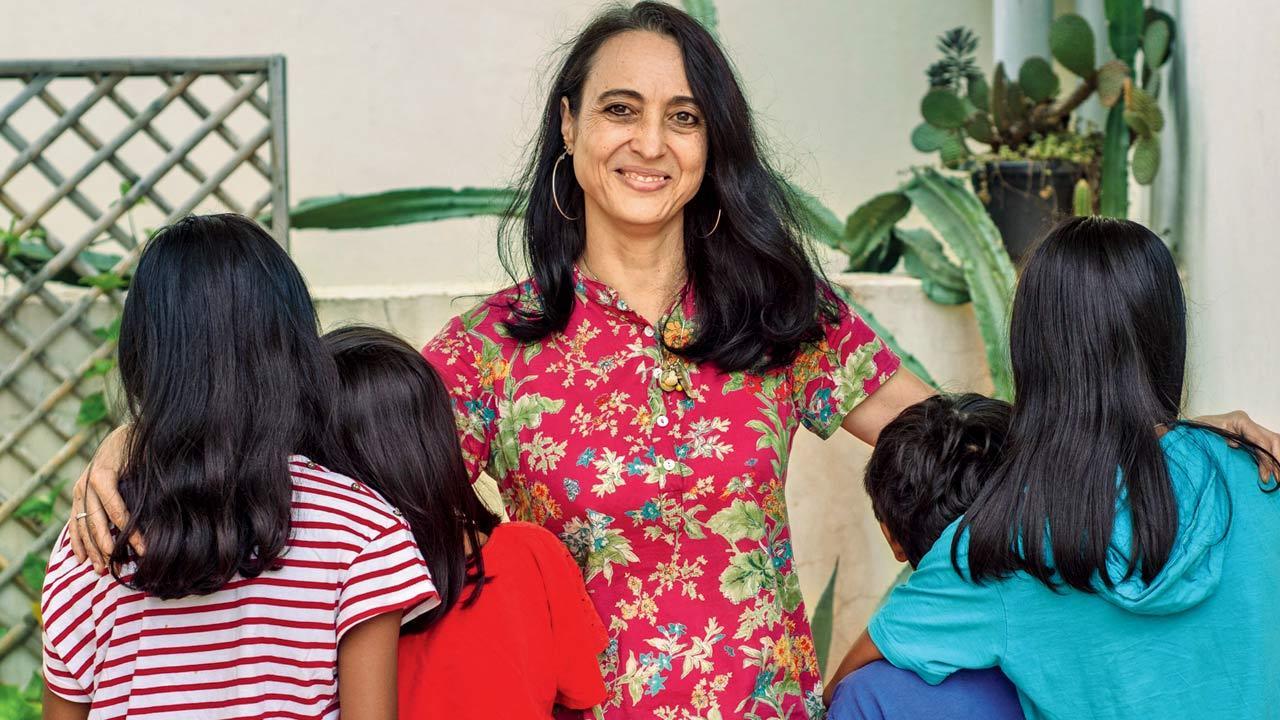
Elena Gil adopted four siblings from a Chhattisgarh shelter three years ago. She was told by the elder kids that they lost their mother to jaundice. CARA officials said that it is unusual for four siblings to find one home. Pic/Nilanjan Mukherjee
Nine-year-old Elena Gil was dealing with tragedies unprecedented for her little heart. Her mother, Maria Luz, had been bedridden for a year after a motorbike accident, two years after her father, Juan, succumbed to brain cancer. The beauty of her town Málaga, in the hills of southern Spain, did nothing to dull this pain.
ADVERTISEMENT
Gil, now 47, and her husband Upal Basu,49, are on a Zoom call with us. The couple resides in Bengaluru, and Maria, 85, has Alzheimer’s and still resides in Málaga. She wants to see her four grandchildren before she loses all mental faculties. The catch? Gil and Basu’s children are adopted, and they are racing against time to get them Spanish passports.
“I always thought I would adopt two girls, and when I moved to India in 2013, it was somewhere at the back of my mind,” says Gil, wearing a grey sweater and a pair of glasses flanked by auburn tresses. Basu, an architect, speaks to us from Goa. “Elena shows them her hometown and their grandmother, and the children want to meet her. They want to see where their mother grew up,” he says. Wearing a green shirt, the curly-haired man wears the look of someone who doesn’t lose his calm too often. “It has already been an uphill climb to adopt the children; we hadn’t anticipated this struggle,” he adds.
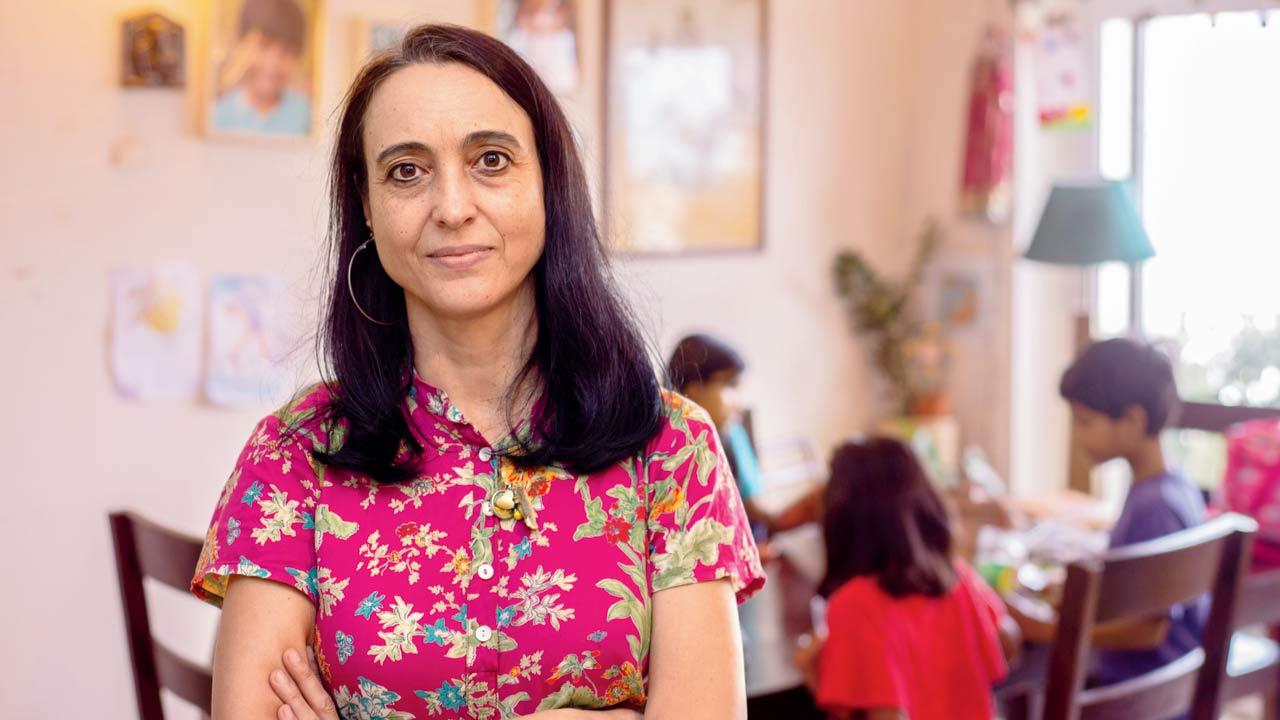 Elena Gil is working against the clock to try and get her four children to meet her sick mother in Spain, before it’s too late. Pic/Nilanjan Mukherjee
Elena Gil is working against the clock to try and get her four children to meet her sick mother in Spain, before it’s too late. Pic/Nilanjan Mukherjee
Gil has an Overseas Citizenship of India (OCI) card since she is married to an Indian national. When the couple decided to adopt, soon after getting married in 2018, Gil asked the Spanish Consulate what this would entail for the family. “When I went to the Spanish Consulate in Mumbai in 2020, they told me that my adopted Indian children would have no issues getting a Spanish passport,” she says. “I met the children thrice in the course of a few months. They had already been separated as two of them were below six years of age, two were above. They came home in May 2021.”
Gil then started asking how they could proceed to get the children Spanish passports in 2022. “The Consul I had spoken to during the adoption process was transferred and the new Consul, Fernando Heredia Noguer, has been dragging their feet,” says Gil. “When I finally threatened to go to the media [over the delay], they sent us a list of mistakes in our adoption certificate—trivial things such as translating the Hindi ‘S’ to ‘Sh’ in Spanish. The adoption certificate being a document of ‘non contesting nature’, there are other minor mistakes that can’t be modified by the Indian family court.”
Desperation grew when news of Maria’s sinking health trickled in early this year. “After twenty four flights to Spain cancelled, finally the Spanish Consulate agreed to grant them the possibility of travelling with Indian passports in February 2024. But recently, the Consul dropped a bomb on us: the tourist visa needed to be submitted before the new Spanish Consul steps in from July 31st. I feel like I’m being punished for adopting locally,” adds Gil.
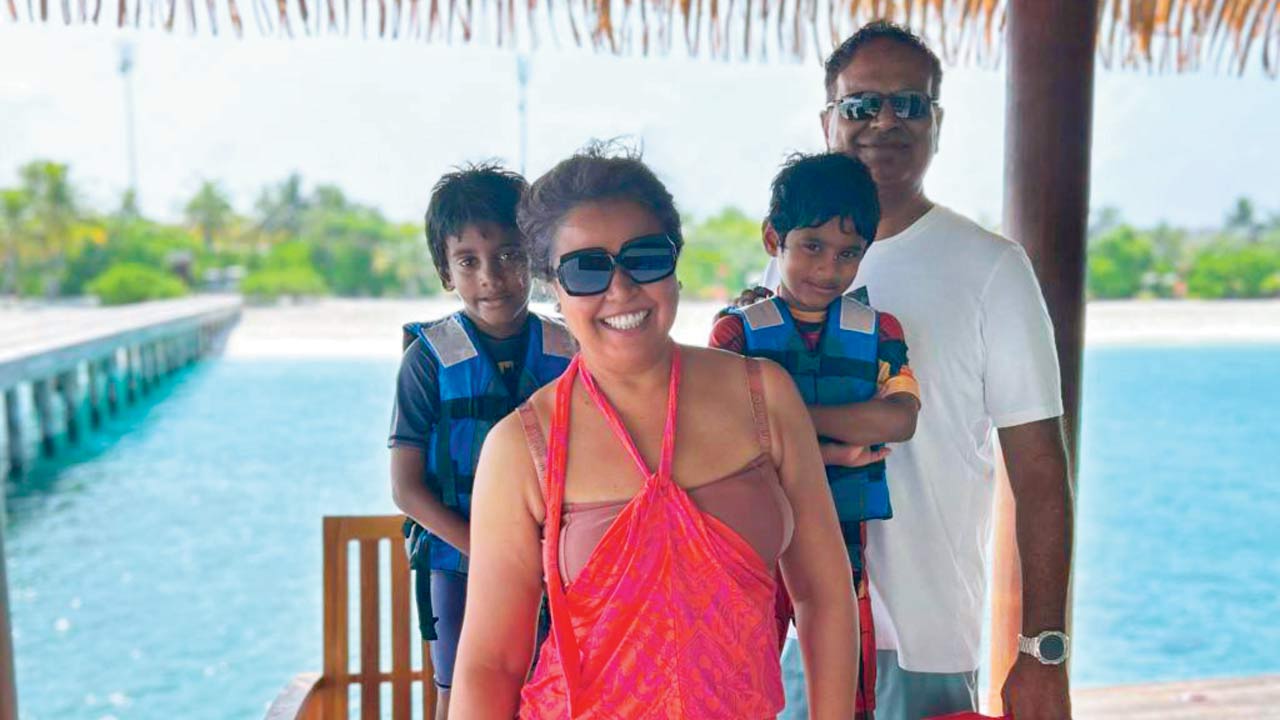 Kanika Kapoor with the kids and Husband Ramesh
Kanika Kapoor with the kids and Husband Ramesh
The couple now has an appointment on August 5 at the Passport office. For the third time, they will start the application process from scratch.
The Gil-Basu children’s road to an Indian passport may be a tough one, like Kanika Kapoor’s. The Art of Living coach lives in Bandra, and adopted her two children in November 2020 when she and her husband lived in Bengaluru. “I am American-Canadian and my husband has a Canadian passport,” she says. “My husband and I were born Indian but moved to the US and Canada and became citizens. In 2017, we wanted to move back and adopt siblings. Our children came home only nine months after we applied for adoption, but it took us longer to get their Indian passports.”
First came the shock that there is no Tatkal path for passports for adopted children. “At the passport office, the conversation started with, ‘How come you have an American passport but your children are Indian?’,” says Kapoor. “We had to explain to each officer that they were adopted and there was a provision under law for this. I think there aren’t any SOPs (Standard Operating Procedures) for children adopted by OCI, and the officers are in the dark. It’s a lucky draw of variables for things to go your way—the passport officer should be in a good mood; or the applicant speaking an Indian language.” Kapoor can only hope that getting an American passport for her children will not be as difficult.
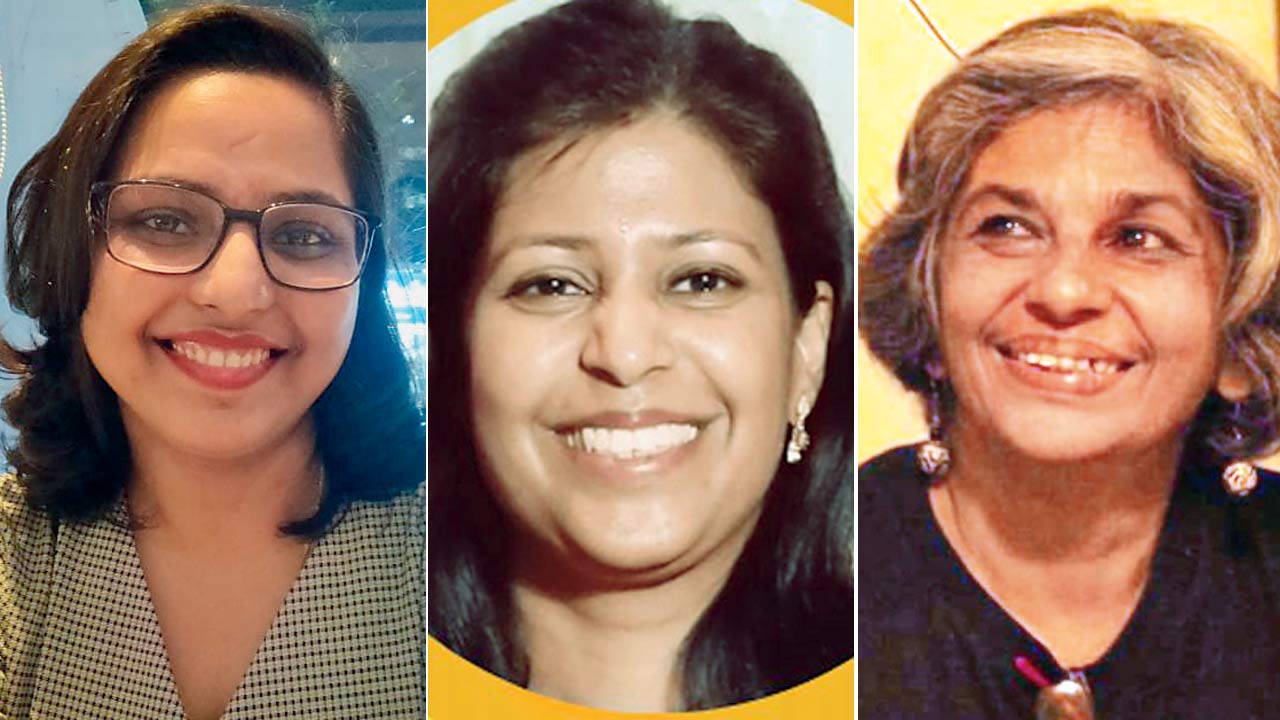 Advocate Shruti Jadhav, Smriti Gupta and Susan Abraham
Advocate Shruti Jadhav, Smriti Gupta and Susan Abraham
On July 16, the government notified the intent to allow OCI and NRI persons to adopt Indian children under the Hindu Adoption and Maintenance Act 1956 (HAMA).
The move comes after a long drawn-out debate over there being no mechanism for inter-country adoption under HAMA, which comes under the juvenile justice system. CARA (Central Adoption Resource Authority) is the only authority for intercountry adoptions, and its NOC is mandatory under the Hague Convention—a series of international treaties—to rule out child trafficking. ‘Free to Surrender’ is another clearance that comes from CARA, which makes the children legally free to be adopted. It is the biggest hurdle in matching prospective adoptive parents (PAP) with children in the system.
Advocate Shruti Jadhav has worked extensively in the NGO sector and represented victims of domestic violence, sexual violence (women and children). “Until 2012,” she says, “even though CARA existed, the adoption process was not centralised; the State Adoption Resource Agency (SARA) oversaw it instead and it gave the opportunity to certain parties to exploit the loopholes.”
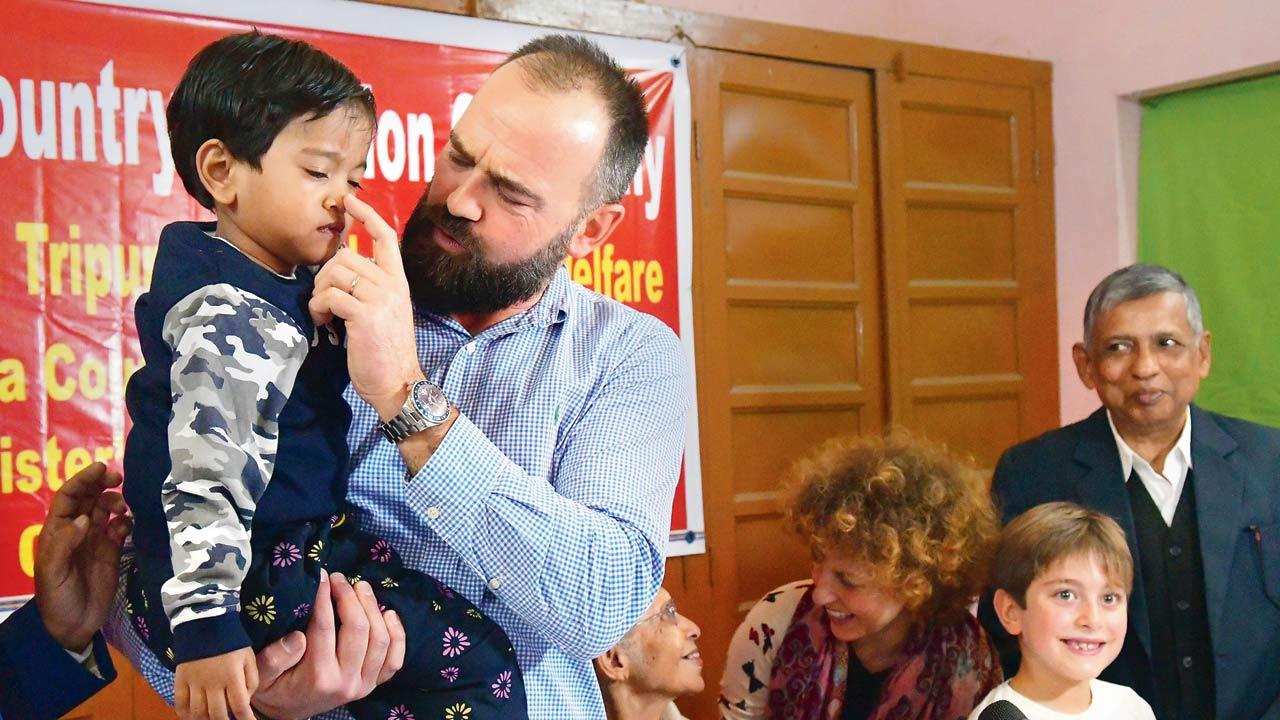 An Italian couple, Cristiano Enriko Borgi and Siyeara Ketenioyeke adopted a three year old girl, called Srea. This was on the occasion of Inter-Country Adoption Ceremony at Agartala, capital ofTripura back in 2018. File pic/Getty Images
An Italian couple, Cristiano Enriko Borgi and Siyeara Ketenioyeke adopted a three year old girl, called Srea. This was on the occasion of Inter-Country Adoption Ceremony at Agartala, capital ofTripura back in 2018. File pic/Getty Images
She points out that well into the 2000s, foreigners came to India for cheap labour. “People would go to shelter homes in different states and cherry-pick children from a line-up,” she says, “Adoption was one of the easiest ways to get labour that was not just cheap, it was free. However, after CARA took over the adoption process, there was conscious effort to stop such exploitation. This, unfortunately, also resulted in making adoption more difficult in some genuine cases.” One measure in place is that foreign or OCI persons who want to adopt Indian children have to prove cohabitation for at least two years.
She admits that cases like Gil-Basu’s can suffer due to the tedious process. “I don’t doubt her intention,” Jadhav says, “but I would urge her to not lose heart. Every Consulate has a system of checks and balances, and if someone is dragging their feet, she can complain to the appellate authority within
the Consulate.”
Pune’s Smriti Gupta, who has adopted a child, feels that many OCIs lack information. “Adoption is difficult anyway,” she says. “And it can be complicated for OCI parents who don’t have access or knowledge of SOPs (Standard Operating Procedure). I understand that these rules are in place for the safety of the children, but many OCIs are in the complete dark about how to navigate the system.” She’s part of a support group that guides PAPs on the CARA clearances needed.
Advocate Susan Abraham, who has worked with Indian Association for the Promotion of Adoption & Child Welfare (IAPA)—set up in the 1970s to work with vulnerable and disadvantaged children—and helped secure a family for those so deprived by promoting “adoption”, feels that not just OCI’s but Indians are facing the same issues due to ill thought out laws and acts. “If you think OCIs face difficulties in adoption procedure, think again. Because Indian citizens face far greater hurdles. At one time there used to be a concept of promoting adoption. Today what we have is “prevention’ instead of promotion by entangling the whole procedure in legalese,” she says. She lays the blame on the Juvenile Justice Act, “We can thank the ill-thought out and hastily enacted Juvenile Justice (Care & Protection of Children) Act, 2015, for the mess not just OCIs but Indian PAPs are facing. As Gil waits to take her children home, she says, “We were not told how their biological parents died. The older girls told us that the mother went yellow and died at home. The father just collapsed suddenly and died a few months later. We have a long road of healing ahead of us—the youngest child was only two when he lost his parents.”
We explain that the process guards the safety of the children, to which their mother replies, “I don’t have a problem doing the work [to guarantee their safety]. It is quite sad that the most difficult part in our entire process has been the Spanish government delays and contradictory guidelines. If even the tourist visa for the kids to travel and meet their Spanish family is refused, I’ll pitch a tent outside the consulate…”
The Spanish Consulate did not respond to our email regarding the Gil-Basu children. A tent might get their attention.
40.68L
No. of OCI cards issued in 2022. Overseas Citizenship of India (OCI) is a form of permanent residency available to foreigners of Indian origin and their spouses to live and work in India
24
No. of flights cancelled to Spain
In 2023, then
MP Smriti Irani stated in Parliament 3,142 children were adopted by foreign nationals in 2020-2021. The number stood at 431 in 2022-2023
 Subscribe today by clicking the link and stay updated with the latest news!" Click here!
Subscribe today by clicking the link and stay updated with the latest news!" Click here!







